Cefusa and the UPCT create a research chair to boost future farming
- They will study all aspects related to sustainable slurry management
- The research chair to be directed by Doctor Faz will be cutting edge and will enable the environmental impact of farms to be minimalised as well as finding new fertilisers to improve soil properties.
- Cefusa has wide experience in livestock farming management and is committed to making farms more and more sustainable
The Vice-chancellor of the Polytechnic University of Cartagena, Alejandro Díaz, together with representatives from the livestock company Cefusa, Tomás and José Fuertes and Juan Cánovas, respectively, signed an agreement this morning to create a research chair which aims to make farming in the future more sustainable and environmentally friendly.
The Director of the Chair, Ángel Faz, explained that the main objective of the chair is to research a sustainable slurry a la carte management system, that is, to individually analyse the environmental conditions linked to pig farms, to apply the best techniques which enable emission reduction, and better water resource management as well as minimalizing the possible negative effects on towns near the farms.
More specifically, it will concentrate on the recovery of nutrients and reuse of treated effluents in semi-arid areas with high livestock production, as well as areas which have been declared vulnerable. In addition, they will study how to obtain quality fertiliser to considerably improve the properties of the soil, so that it is capable of retaining carbon and reducing its environmental impact.
Tomás Fuertes highlighted the importance of “leading research in this field to get a more sustainable livestock sector”, and he reminded everyone of the permanent effort Cefusa makes to improve its processes in order to reduce the impact of its activity on the environment and achieve a product of the highest quality.
The vice-chancellor thanked Cefusa for its work together with the Polytechnic University of Cartagena and its commitment to the creation of this new research chair, and underlined the important network of chairs which the UPCT has, made up of more than 40 technological, enterprise and socioeconomic chairs.
Cefusa
Cefusa is the livestock company of Grupo Fuertes and its activity centres on the breading and fattening of white and Iberian pig as well as cows. It has livestock facilities and feed factories in various municipalities in the south east of Spain, equipped with cutting edge technology capable of optimising the production system.
The company is certified in the food safety and animal welfare programme (Animal Welfare Standards), as well as in the AFP (Antibiotic Free Pork) production Programme. In addition it has a traceability certificate in the pork industry and the EC-178/2002 regulation
It is a modern, sustainable and dynamic company which is committed to implementing a single global traceability system based on a quality production process, which not only guarantees the traceability of any batch, in any of the phases, but also enables the genetic, nutritional and health monitoring throughout the process.
The director of the chair Dr. Ángel Faz
Ángel Faz Cano is a Doctor of Science and a lecturer at the Polytechnic University of Cartagena, specialised in the treatment, valuation and management of organic sub products derived from pork production and environmental rehabilitation. He is responsible for the Soil and Water Management, Utilisation and Rehabilitation Group at the university.
During his career as a researcher his work on slurry and the pork industry particularly stands out. Ángel Faz Cano has written numerous publications related to the treatment and valuation of slurry from the pork industry. As a result of this research he has collaborated with different institutions such as the Ministry or The Centre for Technological and Industrial Development (CDTI) on R&D programmes, in fact, he has been awarded the Isaac Peral and Caballero Prize. He is also the coordinator of the Mining, Environment and Sustainable Development Doctoral Programme.

